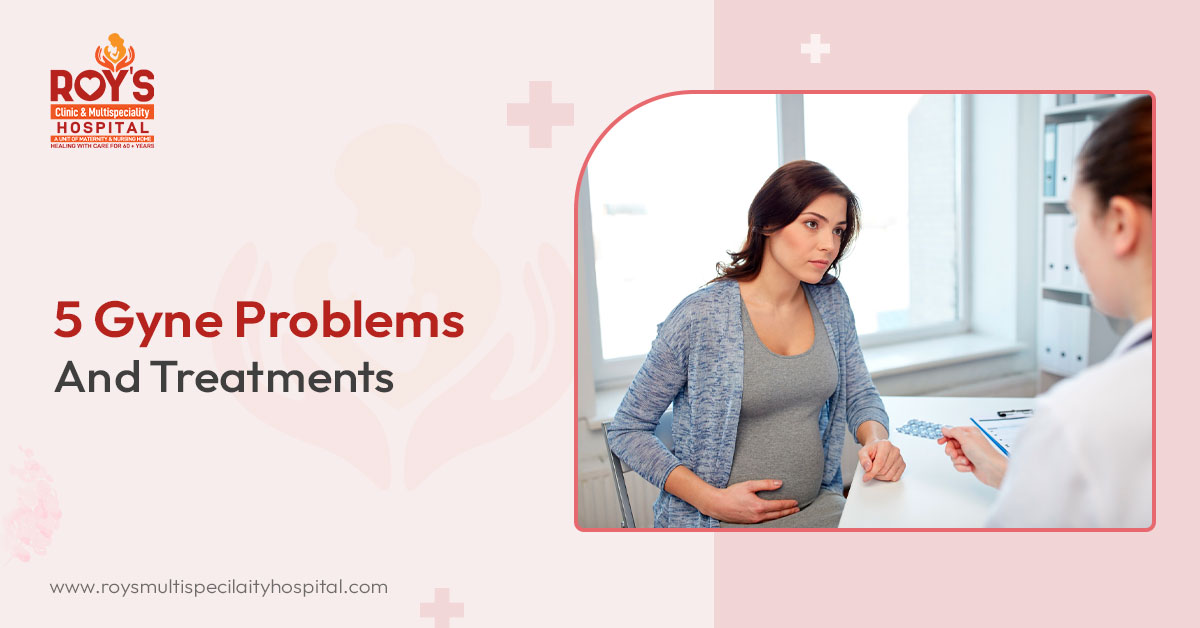Women's health is considered a complex issue especially when it deals with reproductive organs like ovaries, uterus, genitals, fallopian tubes, and breasts. With age and childbearing responsibilities, women tend to face certain gynecological problems that need the consultation of specialists or gynecologists. Doctors at the best gynecologist hospital in Siliguri list five of the most common gynecological problems faced by women during their lifetime and how they should deal with them.
Dysmenorrhea
Some women experience severe menstrual cramps and pain during menstruation. This is commonly referred to as dysmenorrhea in medical terms. Dysmenorrhea may be primary or secondary. Dysmenorrhea occurs throughout adolescence and during ovulation.
Starting a few hours before menstruation, the severe pain can last for a few hours or throughout the day. It has no underlying causes related to pelvic disorders. Secondary dysmenorrhea occurs due to health-related issues of the pelvis like uterine fibroids, endometriosis, copper-T insertion, or infections.
Polycystic Ovaries Syndrome (PCOS)
Most modern women suffer from PCOS which is mostly related to a stressful and sedentary lifestyle. This syndrome is characterized by the ovaries over-producing testosterone and enlarging in size. The presence of follicular cysts further adds to the problem, with the patient experiencing increased weight, irregular periods, hirsutism, and infertility issues.
Treatment of Polycystic Ovaries Syndrome (PCOS) at the maternity hospital in Siliguri focuses on less medication and more on lifestyle changes to reduce stress and lifestyle disorders.
Vaginitis
One of the most common gynecological issues in young girls and women is vaginitis, which refers to an infection of the vagina due to the absence of estrogen. Increased urination and vaginal discharge with a foul smell is the most common symptom of vaginitis. Vaginitis may be caused due to microorganisms or candida yeast leading to itchiness in the vulva and an abnormal discharge from the vagina along with discomfort.
Uterine Fibroids
These are benign tumors common in women during their reproductive age. Some of the common symptoms of uterine fibroids are infertility, heavy menstrual bleeding, dysmenorrhea, repeated miscarriages, pelvic and abdomen pain, and enlargement of the abdomen. Consulting gynecologists and taking regular medications along with lifestyle changes can bring about relief.
Endometriosis
Some women experience abnormal pain during menstruation and sexual intercourse. One of the primary reasons for this is the condition of endometriosis where the uterine lining is found in regions outside the uterus like the ovaries, fallopian tubes, and the pelvic floor. Symptoms of endometriosis include very painful periods, nausea, constipation, diarrhea, infertility, and fatigue. Treatment starts with medication and more severe cases may require surgery to remove the endometriosis tissue.
While most of the above gynecological problems can be treated through a proper course of medication, they should be well addressed in time to avoid complexities and affect the fertility abilities of the women.
Gynecologists suggest medications along with a change in lifestyle and sexual habits to restore the health of the female reproductive organs and thereby enhance the general well-being of women around the world.




.png)

Comments